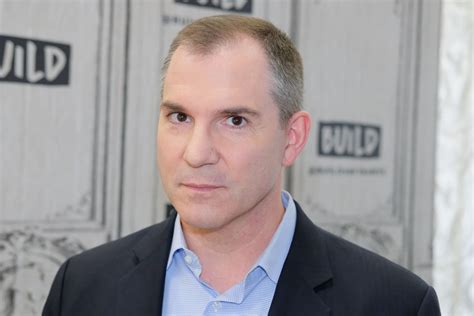A Quote by Hunter S. Thompson
I can't think in terms of journalism without thinking in terms of political ends. Unless there's been a reaction, there's been no journalism. It's cause and effect.
Related Quotes
In terms of the rise of social media and the kind of discourse that it encourages, the kind of pointed attitude it encourages, in terms of the number of venues like our conversation here where reporters who are not technically opinion columnists are giving analysis that's invariably gonna edge into opinion. I think our journalism is getting much more almost European in terms of that, that ideal of objectivity exiting it.
Anyone who does investigative journalism is not in it for the money. Investigative journalism by nature is the most work intensive kind of journalism you can take on. That's why you see less and less investigative journalism at newspapers and magazines. No matter what you're paid for it, you put in so many man-hours it's one of the least lucrative aspects of journalism you can take on.
Sure enough, as merger has followed merger, journalism has been driven further down the hierarchy of values in the huge conglomerates that dominate what we see, read and hear. And to feed the profit margins journalism has been directed to other priorities than "the news we need to know to keep our freedoms"
I think a way to behave is to think not in terms of representative government, not in terms of voting, not in terms of electoral politics, but thinking in terms of organizing social movements, organizing in the work place, organizing in the neighborhood, organizing collectives that can become strong enough to eventually take over - first to become strong enough to resist what has been done to them by authority, and second, later, to become strong enough to actually take over the institutions.
This is a very proud moment for journalism. I think The New York Times and The Washington Post are genuine champions in this moment. The role that they are playing in democracy is the role that you hear about journalism playing in civics classes. Other people are doing great work, but the Times and the Post have really been leaders. The public is watching, and they are hungry. They know something is wrong, there's a lot of anxiety out there. There's a real sense that the mission of journalism is very clear.
I personally think honestly disclosing rather than hiding one's subjective values makes for more honest and trustworthy journalism. But no journalism - from the most stylistically 'objective' to the most brazenly opinionated - has any real value unless it is grounded in facts, evidence, and verifiable data.

































